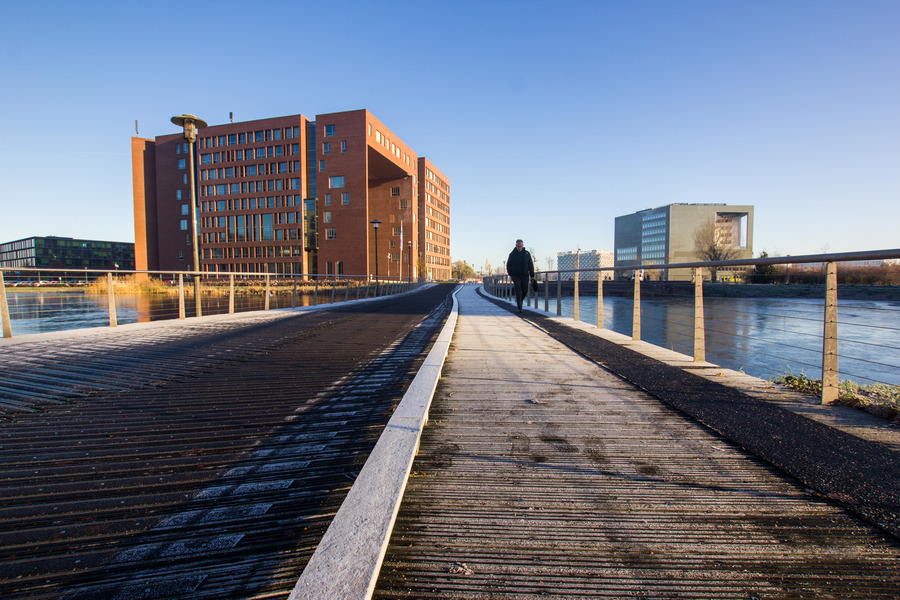Universities and colleges must all make a plan to fortify their academic freedom, says a majority of the House of Representatives. KNAW expert André Nollkaemper responds (below): ‘Universities are always responsible for advancing academic freedom.’
During the debate on “safety” in tertiary education, Joost Eerdmans (JA21) submitted a motion: The cabinet must make a plan with universities and colleges ‘in which concrete measures are contained which each individual institute must take to fortify academic freedom.’
Decline
Students and scientists must be able to discuss openly, the motion states. He argues there is a ‘decline’ in academic freedom. He explicitly mentions social safety, freedom of expression, protection from ideological pressure and combatting intimidation and threats against scientists. During the debate, he provided examples: ‘If you are pro-Trump or critical of the climate issues, you are in a pickle. The Palestinian flag has been put up in some university halls.’
Minister Eppo Bruins stated that the motion was redundant because universities are already working on protecting their threatened scientists. Moreover, he regularly meets with the Royal Netherlands Academy of Sciences (KNAW, which he called the ‘conscience of science’), which released a report on academic freedom in 2021.
Majority
Still, a majority voted in favour of the motion, albeit without a unanimous vote from the coalition. PVV, VVD and BBB voted in favour, and NSC voted against. The opposition was equally divided. SP, CDA and Denk voted against it, while GroenLinks-PvdA and D66 de supported the motion.
Interview: ‘Academic freedom is not the same as social safety’
‘The threats against academic freedom come mainly from outside the universities’, says Professor of International Law and Sustainability André Nollkaemper, who chairs the KNAW Commission for Freedom of Scientific Practice.
What threats come to mind?
‘Universities’ funding, polarisation in society, the debate on knowledge security… all these things are linked to academic freedom. Such threats have deep roots that cannot simply be passed on to the university. Having said that, there certainly are developments within the universities that we need to address. There are, occasionally, obstacles to scientific practices, debate, freedom of expression or recruitment of guest speakers within universities.’
Will a motion such as this help change that?
‘Consider it encouragement. Universities have always been responsible for advancing academic freedom, so they must always consider the best path to achieve that goal.’
How big is this issue?
‘Teachers and students were asked about self-censorship. Between 14 and 28 per cent of the teachers felt stifled in expressing themselves to students or in teaching about sensitive topics. Among students, 34 per cent feel stifled in their interaction with teachers. Here lies an issue universities must address.’
Taking a moment before expressing your opinion is not a direct threat to academic freedom, is it?
‘No. You must be aware of the other person’s position, and sometimes that means exercising restraint. Consider, for example, discussions about Gaza, genocide and discrimination. I taught about Srebrenica and the Balkan War, including to students from that region. It was an extremely sensitive topic.
Have you ever felt curtailed in your academic freedom?
‘No. I took part in several debates on Israel, and although I experienced sensitivities, there were never restrictions. Still, the issue is evident at the University of Amsterdam: both sides of the spectrum feel they can’t always say what they want.’
Academic freedom is not the same as the freedom to fly a banner, is it not?
‘Indeed. Academic freedom is not the same as freedom of expression or the freedom to demonstrate. But consider, for example, sit-ins or lectures in the hall. Demonstrations, teaching and debating merge. The basis should be that employees and students interact respectfully, even if there are heated discussions.’
What do you do when people feel socially unsafe simply because their position is under discussion?
‘There are huge differences in opinion over sensitive issues. Although academic freedom depends on social safety, they are two separate issues. The motion places academic freedom in the domain of social safety, which I don’t think is wise.’
HOP, Bas Belleman
Cooperate or not?
Universities and colleges have responded unenthusiastically to the motion. ‘We are eager to discover how the minister intends to put it into practice’, says a spokesperson of the overarching organisation UNL. ‘We will have to await that before deciding how we can contribute.’ Colleges will also await the minister’s actions.
The Netherlands drops in world academic freedom ranking
The Netherlands does not feature high in a global comparison of academic freedom. Countries score between 0 and 1 point on the Academic Freedom Index. Chechia leads the ranking, while North Korea is right at the bottom of the list. The Netherlands scores 0.79, less than Botswana, Peru and Surinam, and also less than Germany (0.93).
Within the EU, the Netherlands is one of the countries with the lowest ranking, followed only by Greece, Poland, and Hungary. Just a few years ago, the Netherlands was among those leading the list. Especially “campus integrity” scores low, which means that external interference with students and researchers on the campus is on the rise.
What precisely causes this is not immediately clear. The KNAW will publish an analysis shortly.

 Photo Marte Hofsteenge
Photo Marte Hofsteenge